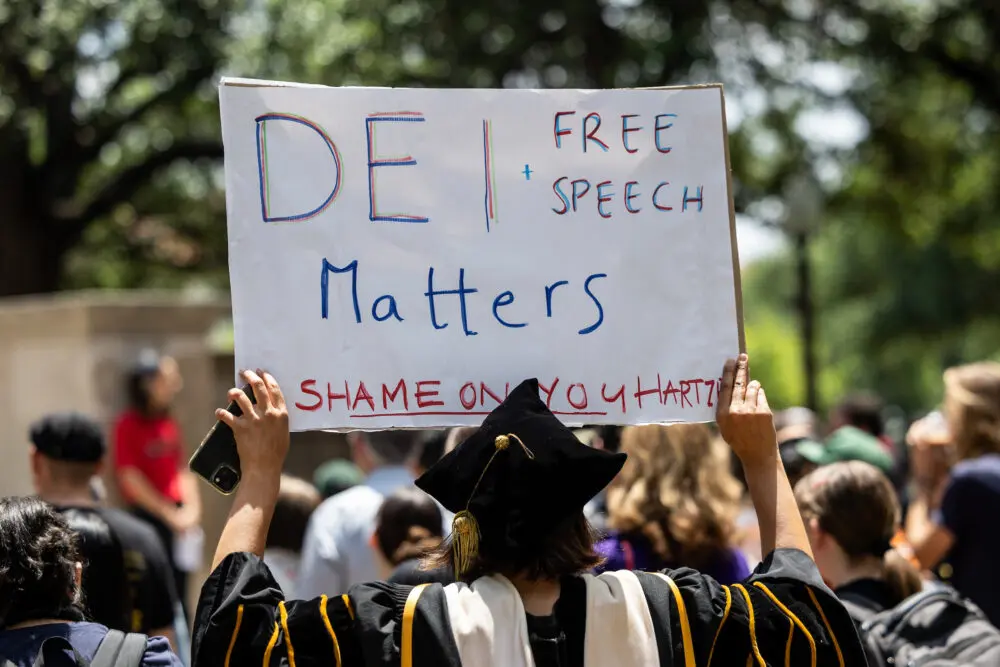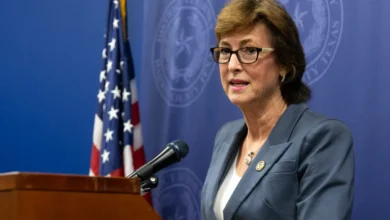University professors in Texas are increasingly self-censoring across the political spectrum due to concerns about damaging their reputations or losing their jobs, according to a recent survey by the Foundation for Individual Rights and Expression (FIRE), a First Amendment advocacy group.
The survey, one of the largest of its kind, gathered responses from over 6,200 professors nationwide, including more than 200 from the University of Texas at Austin, nearly 50 from the University of Texas at Dallas, and over 165 from Texas A&M University in College Station.
According to the findings, 35% of respondents admitted to recently toning down their writing to avoid controversy, while 27% felt unable to speak freely out of concern for how students or administrators might react. Nearly a quarter expressed fear of losing their jobs due to misunderstandings.
These concerns were more pronounced at Texas universities. At UT-Austin, over half of the surveyed faculty reported holding back their opinions occasionally or often for fear of backlash. Nearly half of respondents at UT-Dallas acknowledged moderating their writing to avoid pushback.
“Faculty are not confusing self-censorship with politeness or professionalism,” the report emphasized. “Instead, they consistently refrain from sharing their views in professional and conversational contexts due to fears of social, professional, legal, or violent repercussions.”
FIRE warned that this environment threatens the foundation of higher education. “The academy needs bold faculty willing to research, teach, and explore controversial topics, as well as institutional leaders who support them,” the report concluded.
Some faculty shared firsthand accounts of self-censorship. A professor at Texas A&M described avoiding certain responsibilities out of self-preservation, saying, “I now say nothing at faculty meetings, if I attend at all.” At UT-Austin, another professor likened the environment in certain departments to being “cult-like and fascistic,” adding, “I have to pick my battles carefully.”
The report also highlighted the high-profile case of Kathleen McElroy, a Black journalism professor whose hiring process at Texas A&M was derailed after criticism from the Board of Regents and alumni groups over her work on race and diversity issues. McElroy ultimately declined the job and received a $1 million settlement after an administrator admitted he couldn’t protect her from termination if the regents intervened.
FIRE’s data showed self-censorship was more prevalent among conservative faculty, with 55% reporting self-censorship compared to 17% of liberal faculty. The survey also found bias against conservative academics, with some faculty indicating that conservatives would be a poor fit for their departments.
Two-thirds of respondents opposed universities taking positions on political or social issues. This sentiment was even stronger among Texas faculty, with about 70% at UT-Austin, UT-Dallas, and Texas A&M supporting institutional neutrality.
Earlier this year, the University of Texas System Board of Regents adopted an institutional neutrality policy following heated debates on campus over issues like the Israel-Hamas conflict. Around 70% of UT-Austin respondents identified this conflict as one of the most challenging topics to discuss, along with racial inequality and transgender rights. At Texas A&M, faculty cited racial inequality, transgender rights, and abortion as the most difficult issues.
The survey also addressed the contentious topic of diversity statements, required by some institutions as part of the hiring process. Half of the respondents opposed these statements, which Texas lawmakers banned last session under Senate Bill 17, eliminating diversity, equity, and inclusion offices at public universities.
Many faculty expressed skepticism about their administrators’ willingness to defend free speech against political pressures. At Texas A&M, only 45% felt academic freedom was somewhat secure, while over a third doubted whether administrators would protect free speech on campus.
One notable incident involved a Texas A&M professor placed on paid leave after a student with political connections complained about comments allegedly critical of Lt. Gov. Dan Patrick. Despite the complaint being found unsubstantiated, faculty said the episode created a chilling effect.
As Texas prepares for another legislative session, faculty anticipate further challenges, including proposals from Lt. Gov. Patrick to limit the influence of faculty senates, which oversee curriculum and hiring decisions.







